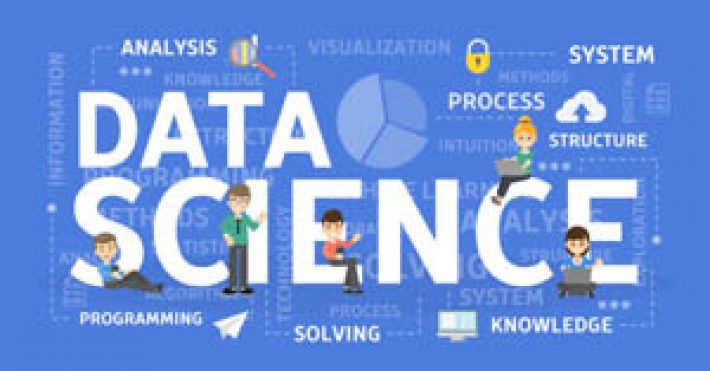Introduction:
Job Portals use Data science to bring logic and reason to recruitment, which largely governed by intuition before. You would go to an interview, answer questions asked by a panel of superiors and let them judge you on the things you say and wear, all the while hoping you are nailing the interview. With job boards and recruitment agencies, dawned a new time in job search wherein the whole model became different.
The job seeker would post his resume on any job board, say Monster.com. The prospective employer would put in certain specifications and if our candidate fulfills those, he would be considered for an interview. Skills, educational qualification and experience gain precedence over whether the job seeker wore the right trousers or not.
This simplification happened largely due to the data-driven approach that forms the foundation of job boards and online recruitment agencies.
Why Is Data Science Necessary In Job Portals?
A data-driven recruitment strategy refers to the use of statistics to make decisions. What it does is that it goes through a large set of data related to job seekers and among them, finds the best ones capable of a certain job listing. Thus, it finds the best fit for the company.
In this age of fierce competition, getting the right candidate would take any company beyond the reach of its competitors. Since thousands of candidates submit their resumes daily, it is clear that there is no dearth of data.
Here are some ways how job boards and recruitment agencies make use of data science:
In any job board, there is a huge repository of data. Employers from various industries and fields post their advertisements. For example, Indeed prides itself on being the #1 job site and has over 200 million visitors- both employers and job seekers- every day. The job postings on big job boards, however, always very organized instead of the haphazard mess one might expect. This is because most job boards use the clustering algorithm to separate job listings, thus making it easier for candidates to search for their ideal jobs. Instead of having to sift through every page, they get categories marked government, bank, marketing, and more.
All job boards contain a dataset showcasing the success level of a candidate- how many jobs they applied to, how many interviews or call-lists they made to, subsequent rejections or call-ins. Now, every candidate has parameters like skill level, age, educational qualification, experience and more, according to which employers decide whether or not they are fit for a job. Suppose, you are a marketer with an experience of 5 years looking for a job.
Data Science Uses in Job Portals:
With the correct use of data science, the job board will be able to predict your chances of getting a job by comparing you with profiles that are similar to yours. This use of historical data provides major help to the job seeker as he will then develop more skills in his field to render him fit for the market.
Most job boards and online recruiters, in their quest to find the perfect employee. Often bring in people who realize halfway through the job that they do not want it anymore and leave. This poses a problem for the companies who then, hold the online recruiters liable. The problem lies with the fact that the recruiting industry focuses only on hiring. Thus, it becomes important for job boards to leverage hired employee data to better predict flighty ones. The long-term success of a company needs to be kept in mind.
Job boards use historical data to provide better features to their users, thus providing enriched user experience. For example, if you are seeking the post of a data analyst in a certain company, job boards will provide you with the probable salary you could expect based on previous candidates’ experiences and this will allow you to negotiate on those terms in a better way, equipped with data. For example, if the time taken to revert to the candidate is too long, he might lose interest in the company. Job boards try to seek out such causes to provide a better user experience.
Difficulties Faced In Implementing Data Science In Recruitment And Job Portals:
While it is clear that a data-driven approach has many advantages, there is a lot of skepticism regarding its use in the field of recruitment. Some of the reasons are:
- A basic Applicant Tracking System or ATS that only tracks hiring numbers is a great tool. At the hands of recruiters that allow them to make sense of the numerous applications. They keep track of the applicants, collect data on time-to-fill or cost-of-hire. But it does not keep track of the hired employees. Their performance henceforth, thus making it difficult to nail the success of the hire. Since the data on hired employees and prospective employees are not kept in the same place. It becomes impossible to compare the two and thus, a potentially perfect employee cannot be found out from the data.
- Siloed data leads to data left unprocessed. When different datasets stored in different systems, it becomes difficult to organize and use them. As such, useful datasets that could be derived from them are left lying about and the recruitment process suffers slight hindrances. Employees that would fare better overlooked due to slight mismatches in their job experience.
- Predictions are better when based on a large set of historical data. Unavailability of such or the storing of data in different systems means that it becomes increasingly difficult for job boards. For example, say you want to hire Golang developers, but since it is a relatively newer language. There’s barely any historical data on their hiring.
Conclusion:
Data Science is not the solution to all recruiting problems. Instead, a tool used by job portals and recruitment boards to benefit job applicants. As well as companies who find difficulties in hiring. While the entire hiring process should not be made machine-driven. One could do the initial screening using data science and the next rounds could be undertaken by human recruiters. This would decrease the workload of human recruiters sitting on the other side of the web-page. And also decrease the time taken to hire candidates- thus benefitting applicants and companies alike.
Job Portals and recruitment boards need a job feed to start with. Before anything else, and getting a continuous job feed that updates with fresh listings from different geographical locations. This is the reason why we came up with JobsPikr, the automatic job discovery tool that comes with filters and keyword searches.



